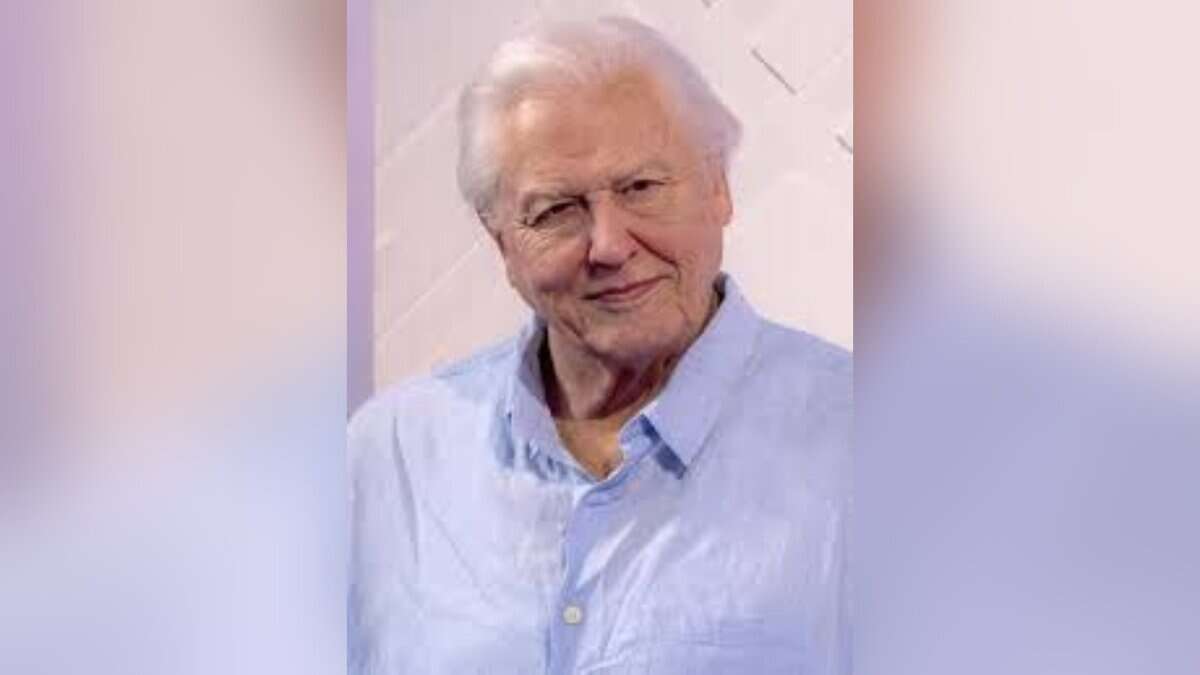
Sir David Attenborough, the man who brought the wonders of dense forests and deep oceans into our living rooms through the medium of television is celebrating his 99th birthday today (May 8th, 2025). But even at this age, he remains tall and sturdy, with a clear mind and an immense enthusiasm for unravelling the mysteries of nature. He admitted recently that he doesn’t have much time left but perhaps that realisation is driving him at a greater speed to fulfill his final goals.
To mark his birthday today, he is launching what he says is one of the most important films of his career – a full-length movie titled Ocean. It will show how the world’s oceans stand at the crossroads today. He feels that the film could play a big role in saving biodiversity and protecting the planet from climate change.
Career more than 70 years
He has had a remarkable career spanning more than 70 years. That is a feat seldom achieved by anyone. In the course of his life he has made films in more than 300 locations across the world and has written about 30 books and hundreds of articles about different facts related to the environment.
He has also filmed documentaries in India titled Secrets of Wild India and Wild Karnataka. In these documentaries he has explored the diverse landscapes and wildlife of various regions in India, such as the Himalayas, jungles inhabited by the famous Bengal Tigers and also the Thar Desert. In 2019 he was awarded the prestigious Indira Gandhi Peace Prize in recognition of his work. At the function, Congress leader Sonia Gandhi described him as the world’s conscience keeper for the cause of nature.
As one can imagine, he has had many hair-raising adventures in the course of his work. He was compelled to undergo a double knee replacement in 2015 but he still went tramping through jungles and up steep hills.
Lives in danger
On one occasion, a tribal Shaman tried to put a curse on him. While filming in a remote part of Indonesia, the shaman attempted to curse Attenborough because he believed the camera was stealing their souls. The situation was extremely dangerous because the tribesmen who had great faith in their shaman could have turned violent and murdered Sir David and his crew. The team had to pacify the tribesmen by offering gifts. The shaman then forced the crew to take apart their cameras to allow the souls trapped inside to escape.
In 1965, while filming in Indonesia, Attenborough and his crew found themselves stranded when a political coup attempt erupted. Shooting broke out, bullets and bombs shattered peace in the region and the crew had to remain locked inside their hotel for several days, cowering under the sound of gunfire. Eventually, they were evacuated, but the experience was a stark reminder of how political instability can suddenly endanger lives of people on scientific missions.
Once during a TV broadcast, a parrot he was handling bit him hard on the finger and almost bit off one end. But he continued presenting the show even though he was bleeding profusely.
Widely recognised
Sir David’s work has been widely recognised by the scientific community. A 430-million-year-old fossil was named Ctenocheirus Attenboroughi in his honor. The deed was not unusual in itself, but the fossil was extremely rare and bizarre-looking, reflecting Attenborough’s love for the oddities of nature.
Former US President Barack Obama is a huge fan of David Attenborough. Obama once said: “I have been a great admirer of your work for a very long time. You have been a great educator. What I have learnt from your programme is that if just one country is doing the right things, it is not enough. We must find a global solution to the environmental issues.”
Sir David’s latest venture (the film, Oceans) contains graphic footage of the damage that is done by a fishing technique called “bottom trawling.” The footage shows how a chain is dragged along the seabed thereby forcing all the creatures into a net that lies behind.
But the irony is that those who employ this method are looking only for one or two edible varieties of fish. More than seventy percent of the catch is rejected but the creatures lose their lives in the process. “It is hard to imagine a more wasteful method of catching fish. The process also releases vast amounts of carbon dioxide which contributes to global warming,” says Sir David.
He is hoping that after watching the film, environment protection groups and governments across the world will ban this damaging way of catching fish. Sir David Attenborough dreams of a future where the planet’s biodiversity is restored, climate change is mitigated and humans live in harmony with nature. His message to the world is: If we can save our oceans, we can save our planet and ourselves.


